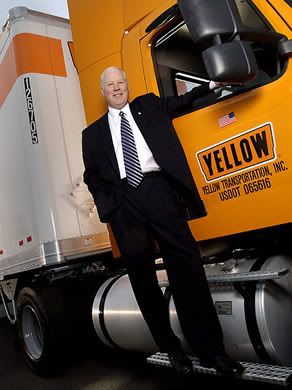The breakaway Change to Win labor federation invested roughly $500,000 in television ads running here and nationally spotlighting what it labels a vanishing middle class.
The ads are part of an effort to raise workers' living standards through organizing, a campaign that includes rallies here and around the country.
The "Make Work Pay" campaign will bring Change to Win Chairwoman Anna Burger to Chicago on Wednesday. She'll participate in a rally with local labor leaders calling for support of a proposed Chicago city ordinance that would require employees at big-box retail stores like Wal-Mart to pay workers a "living wage" of at least $10 per hour and at least $3 per hour in benefits.
Unite Here Local 1, which will hold contract talks with downtown Chicago area hotels later this year, also has planned a rally with religious groups here Thursday as part of the campaign. That rally will take place outside the Congress Hotel, where workers have been on strike for nearly three years.
Change to Win ran television ads that aired Sunday during "Meet the Press," "Face the Nation" and other news shows on the major networks noting that for "tens of millions of hardworking Americans . . . while their companies' profits get fatter and fatter . . and their CEOs get richer and richer . . . workers get left farther and farther behind."
The ads spotlighted a survey showing 27 percent pay raises for CEOs at 200 large companies to an average of $11.3 million.
"Don't let America's middle class vanish. Change to win. It's time to make work pay," say the ads, which also are running on cable networks.
The campaign seeks family-supporting wages, affordable health care, retirement security and the freedom to join unions, federation representatives said.
It is evidence Change to Win is dedicating more resources to organizing, said Jeremy Sherman, national chairman of labor and employment practices at Seyfarth Shaw, which counsels employers. But he labeled the campaign a "public relations effort," and said he's yet to see any indication it will translate "into meaningful success in organizing employees."
The campaign targets 50 million workers in the hospitality, construction, retail, food, health care, transportation and other critical industries, where jobs can't be outsourced, said Change to Win representatives.
"We're trying to unite workers, to have a loud enough voice to [gain] economic justice," Burger said. "We are going to reach out to workers who are not yet organized and to the American people who know this country can't exist without a vibrant middle class. The implications are clear. When employers make work pay, entire communities benefit."
The campaign will bring leaders from Change to Win, which broke away from the AFL-CIO last summer because of disagreements over organizing and national leadership, together with local AFL-CIO leaders here. Illinois AFL-CIO President Margaret Blackshere and Dennis Gannon, president of the Chicago Federation of Labor, are among scheduled speakers at Wednesday's "living wage" ordinance rally in Chicago.
Burger said the ordinance seems to "set the stage, to say when we create jobs, they should be good jobs for our families and for our economy."
Locally, the United Food and Commercial Workers union Locals 881 and 1546 are among supporters of the ordinance. It could serve as a model for communities across the country, Burger said.
Business leaders have argued that it would deter businesses from opening here. David Vite, president and chief executive officer of the Illinois Retail Merchants Association, said the ordinance would discriminate against large retailers. He added that it would hurt some already financially struggling retailers and risk putting them out of business.
"They will be even more unprofitable, and God only knows if they are going to be able to survive," if the ordinance passes, he said.
Change to Win is made up of seven unions representing 6 million workers, including the Service Employees International Union, UFCW, Unite Here and the Teamsters, carpenters, laborers and farm workers unions.
 ABF Freight System, Inc., has secured a U.S. patent directed to its Electronic Shipment Planner, an Internet-based technology available through the carrier's website. This technology powers ABF's Shipment Planner and Shipment Snapshot applications and helps ABF customers manage and track shipments through a calendar interface. The U.S. Patent and Trademark Office, an agency of the U.S. Department of Commerce, issued U.S. Patent Number 7,003,720 to ABF.
ABF Freight System, Inc., has secured a U.S. patent directed to its Electronic Shipment Planner, an Internet-based technology available through the carrier's website. This technology powers ABF's Shipment Planner and Shipment Snapshot applications and helps ABF customers manage and track shipments through a calendar interface. The U.S. Patent and Trademark Office, an agency of the U.S. Department of Commerce, issued U.S. Patent Number 7,003,720 to ABF. 